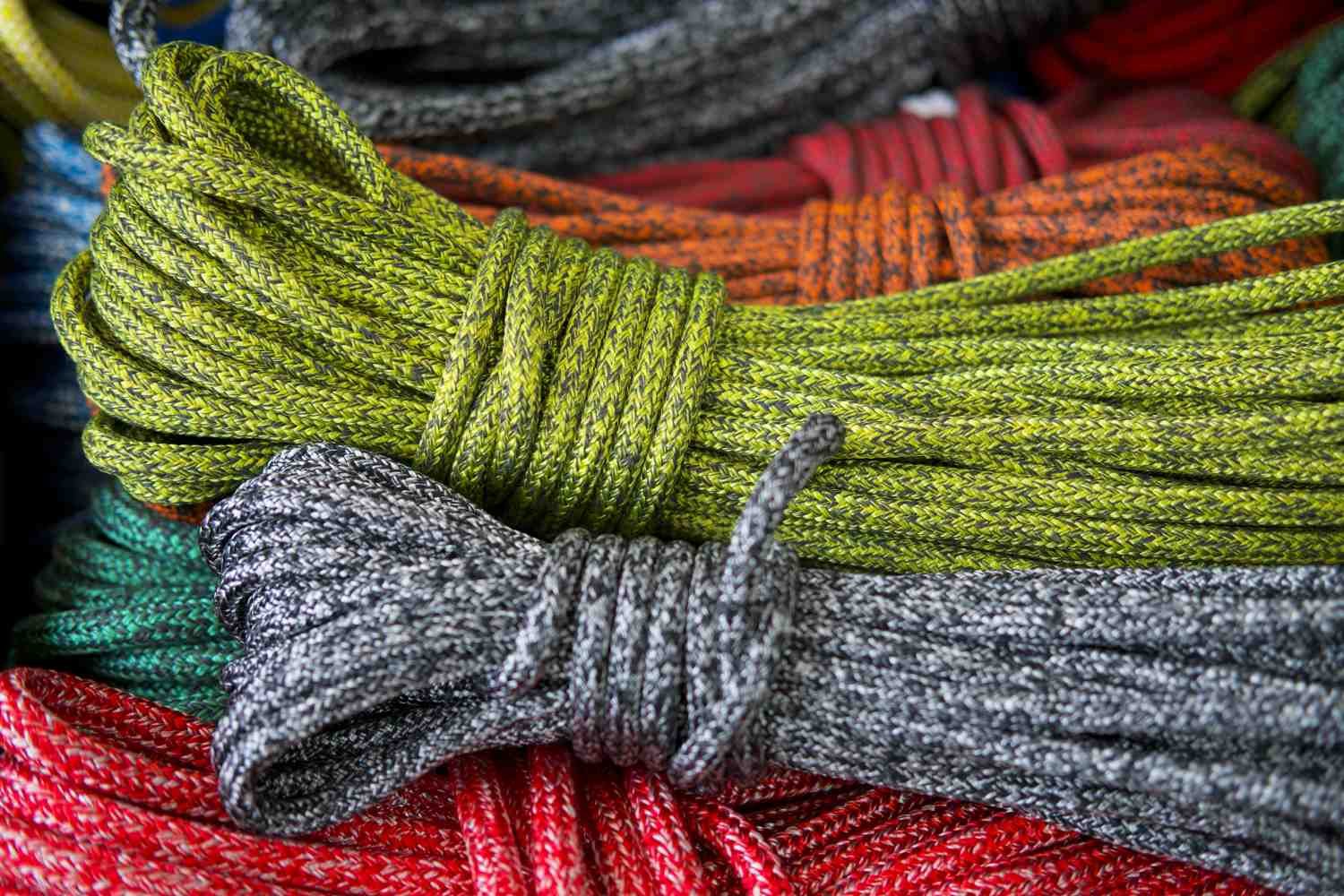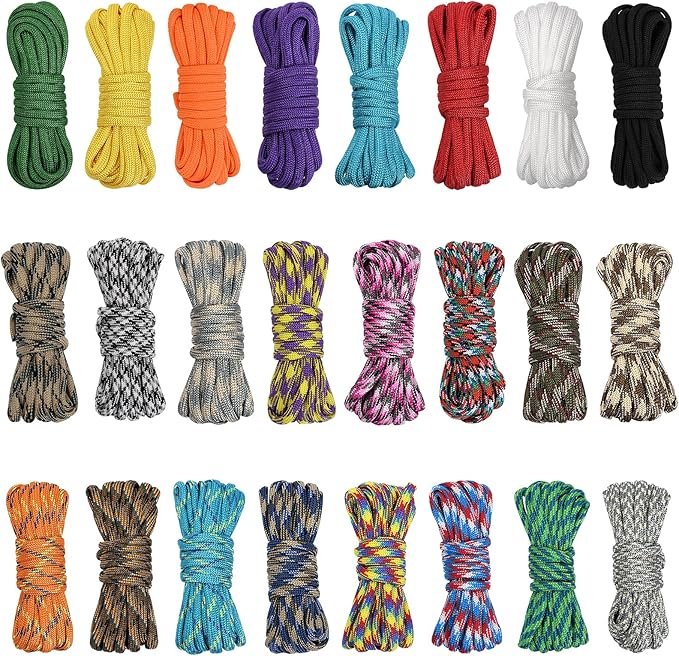
What is Polyester Rope Good For?
Polyester rope is one of the most versatile and reliable types of rope you can use. Whether you need it for boating, construction, or even simple tasks around the house, this rope is known for being strong, weather-resistant, and long-lasting. Unlike some other types of rope, polyester rope doesn’t weaken when it gets wet or sits in the sun, making it a great choice for both outdoor and indoor uses.
People use polyester rope because it can handle heavy loads without stretching too much, stays flexible over time, and resists damage from harsh weather. From tying down a boat to creating a sturdy clothesline in your backyard, polyester rope is an essential tool for many different jobs.
In this article, we’ll explore what makes polyester rope so special, the tasks it’s best for, and how it compares to other types of rope. By the end, you’ll know exactly why polyester rope is such a popular and useful choice.
Features of Polyester Rope
Polyester rope is popular for many reasons, and its unique features make it stand out compared to other types of rope. Whether you’re using it for outdoor adventures, heavy-duty work, or everyday tasks, polyester rope offers a combination of strength, durability, and flexibility that makes it incredibly reliable. Let’s take a closer look at the key features of polyester rope and why it’s so useful.
1. High Durability
One of the biggest advantages of polyester rope is its ability to withstand tough conditions.
- Strong Material: Polyester is a synthetic fiber known for its high strength, allowing the rope to handle heavy loads without breaking.
- Resistant to Abrasion: This rope can rub against rough surfaces, like rocks or metal, without fraying or wearing out easily.
- Long Lifespan: Its durable material ensures that polyester rope lasts a long time, even with frequent use.
2. Weather Resistance
Polyester rope is specially designed to perform well in different weather conditions, making it ideal for outdoor use.
- Waterproof: Unlike natural fiber ropes, polyester doesn’t absorb water. This keeps it strong and prevents it from becoming heavy or rotting.
- UV Resistance: Polyester rope doesn’t weaken or fade when exposed to sunlight for long periods, unlike some other synthetic ropes.
- Temperature Tolerance: It can handle extreme heat or cold without becoming brittle or losing its flexibility.
3. Low Stretch
Another important feature of polyester rope is its minimal stretch under tension.
- Reliable Under Load: When you pull on polyester rope, it doesn’t stretch much, making it ideal for tasks that require stability.
- Consistent Performance: The rope maintains its length and shape, even when holding heavy weights or under constant pressure.
4. Flexibility
Despite its strength, polyester rope remains soft and flexible, making it easy to handle.
- Easy to Tie and Untie: It’s simple to knot and doesn’t stiffen over time, making it reliable for tying secure knots.
- Retains Flexibility Over Time: Even with repeated use, the rope stays flexible without becoming rigid or brittle.
5. Resistance to Chemicals and Mildew
Polyester rope is resistant to many substances that can damage other types of rope.
- Chemical Resistance: It doesn’t break down easily when exposed to oils, greases, or other chemicals, making it ideal for industrial applications.
- Mildew and Rot Prevention: Since polyester doesn’t absorb moisture, it resists mold and mildew, ensuring the rope stays clean and strong.
6. Lightweight and Strong
Polyester rope combines strength with a lightweight design, making it easy to carry and use.
- High Strength-to-Weight Ratio: It’s strong enough for demanding tasks but light enough to transport and handle easily.
- Portable: Its lightweight nature makes it convenient for camping, hiking, or traveling.

Common Uses of Polyester Rope
Polyester rope is an incredibly versatile tool, used in a wide range of activities and industries. Its combination of strength, durability, and resistance to weather makes it a reliable choice for both professional and recreational tasks. Let’s take a closer look at some of the most common uses for polyester rope and why it’s so effective in each situation.
1. Boating and Marine Applications
Polyester rope is a favorite among sailors, boaters, and dockworkers because of its excellent performance in wet environments.
- Mooring and Anchoring: Its low stretch and high strength make it perfect for securing boats to docks or anchors.
- Sails and Rigging: Polyester rope is used in sailboat rigging because it holds tension well and resists UV damage from constant exposure to sunlight.
- Towing and Rescue Lines: Its durability and water resistance make it reliable for towing small boats or using as a lifeline during water rescues.
Why It’s Ideal: Polyester rope doesn’t absorb water, so it stays lightweight and doesn’t weaken in salty or wet conditions, unlike natural fiber ropes.
2. Outdoor Activities
Whether you’re hiking, camping, or climbing, polyester rope is a go-to choice for outdoor enthusiasts.
- Camping: Use it to tie down tarps, secure tents, or hang hammocks. Its resistance to weather makes it reliable even in rainy or sunny conditions.
- Climbing: While not used as the primary climbing rope, polyester is often used as accessory rope for hauling gear or creating anchors.
- Hiking: Carry a length of polyester rope for emergency situations, like building a shelter or crossing a stream.
Why It’s Ideal: Its lightweight design makes it easy to carry, while its strength and flexibility allow it to handle various outdoor challenges.
3. Construction and Industry
In construction and industrial settings, polyester rope is valued for its ability to handle heavy loads and resist environmental damage.
- Lifting and Rigging: Its low stretch and high strength make it ideal for lifting heavy objects or securing scaffolding.
- Load Securing: Polyester rope is commonly used to tie down materials on trucks or at construction sites.
- Safety Lines: Its durability ensures it can be used as a lifeline or safety line in high-risk environments.
Why It’s Ideal: Polyester rope’s resistance to chemicals, abrasion, and UV rays makes it suitable for tough industrial tasks.
4. Home and Garden
Polyester rope is also a practical tool for household tasks and gardening projects.
- Clotheslines: Its water resistance prevents sagging or rotting, making it perfect for outdoor clotheslines.
- Tying Plants: Use it to support climbing plants like tomatoes or beans, as it’s strong but gentle enough not to damage stems.
- DIY Projects: Polyester rope can be used to create hammocks, swings, or decorative items like rope baskets.
Why It’s Ideal: Its flexibility and durability make it easy to use for a variety of simple and creative tasks around the home.
5. Sports and Recreation
Polyester rope is widely used in recreational sports for its reliability and performance.
- Water Sports: It’s used in towlines for waterskiing, wakeboarding, or tubing because it resists water and stays strong under tension.
- Slacklining: Polyester rope can serve as a backup line for slacklines or as part of the rigging system.
- Fishing: Although not the main fishing line, polyester rope can be used to secure fishing nets or anchors.
Why It’s Ideal: Its resistance to water and abrasion ensures it performs well in high-stress recreational activities.
6. Emergency and Rescue
In emergencies, polyester rope is a reliable tool for quick and effective solutions.
- Search and Rescue: Its strength and durability make it suitable for rescue lines in flood or high-altitude situations.
- Pulling or Dragging: Polyester rope can be used to drag heavy objects or as part of a pulley system in rescue operations.
- Lifelines: It’s used to create safety lines in dangerous environments, such as during a fire or flood rescue.
Why It’s Ideal: Its low stretch and resistance to harsh conditions ensure that polyester rope performs reliably when it matters most.
7. Transportation and Logistics
Polyester rope is commonly used in the transportation industry to secure goods and equipment.
- Tying Down Cargo: Use it to secure loads on trucks, trailers, or boats. Its strength ensures the cargo stays in place during transit.
- Bungee Cords: Polyester rope is often used in the construction of durable bungee cords for securing smaller items.
- Winching and Towing: Its high strength and low stretch make it suitable for winching operations and towing light to medium loads.
Why It’s Ideal: Polyester rope’s ability to handle heavy loads without stretching ensures safe and secure transportation.
Advantages of Polyester Rope Over Other Ropes
When it comes to choosing the right rope for a task, the type of rope you use can make a big difference. Polyester rope stands out because of its unique combination of strength, durability, and versatility. Compared to other ropes, such as nylon, polypropylene, and natural fiber ropes, polyester offers several key advantages that make it a reliable choice for many applications. Let’s explore these advantages in detail.
1. Superior Weather Resistance
One of the standout features of polyester rope is its ability to withstand harsh weather conditions.
- Waterproof: Unlike natural fiber ropes, polyester does not absorb water, which means it remains strong and lightweight even when wet.
- UV Resistance: Polyester rope resists damage from prolonged exposure to sunlight, making it ideal for outdoor use where other ropes might weaken or fade.
- Temperature Tolerance: It performs well in both hot and cold environments, maintaining its strength and flexibility.
Comparison:
- Nylon Rope: Absorbs water, which can cause it to weaken and stretch.
- Polypropylene Rope: Floats on water but is less UV-resistant and degrades faster in sunlight.
- Natural Fiber Ropes: Absorb water and are prone to rotting and mildew in wet conditions.
2. Low Stretch Under Load
Polyester rope is known for its minimal stretch, even when carrying heavy loads or under constant tension.
- Stable Performance: Its low stretch ensures stability and reliability, making it perfect for tasks like mooring, towing, or securing cargo.
- Better Control: It holds its shape and length, which is essential for precision tasks like rigging or lifting.
Comparison:
- Nylon Rope: Stretches significantly under load, which can be helpful for shock absorption but less ideal for maintaining tension.
- Polypropylene Rope: Has more stretch than polyester, reducing its reliability for heavy or precise tasks.
3. High Strength and Durability
Polyester rope offers excellent strength and can handle demanding tasks without breaking or wearing out easily.
- Abrasion Resistance: It holds up well against friction and rough surfaces, making it suitable for tasks involving rocks, metal, or sharp edges.
- Long Lifespan: Polyester rope resists wear and tear better than most other ropes, ensuring it lasts for years with proper care.
Comparison:
- Nylon Rope: Strong but less resistant to abrasion, especially when wet.
- Polypropylene Rope: Weaker than polyester, especially when exposed to heat or abrasion.
- Natural Fiber Ropes: Less durable overall and prone to breaking under heavy loads.
4. Resistant to Chemicals and Rot
Polyester rope is highly resistant to damage from chemicals, oils, and solvents, as well as mold and mildew.
- Chemical Resistance: It doesn’t break down when exposed to oils, greases, or most chemicals, making it a good choice for industrial settings.
- No Rot or Mildew: Since it doesn’t absorb moisture, polyester rope resists mold and mildew, unlike natural fiber ropes.
Comparison:
- Nylon Rope: Less resistant to chemicals and more likely to develop mildew in wet environments.
- Natural Fiber Ropes: Absorb moisture, making them vulnerable to rot and mold growth.
5. Versatility Across Applications
Polyester rope’s combination of strength, flexibility, and weather resistance makes it suitable for a wide range of tasks.
- Outdoor and Marine Use: Its UV and water resistance make it a top choice for boating, camping, and other outdoor activities.
- Industrial and Construction Use: Its durability and resistance to chemicals ensure reliable performance in tough environments.
- Home and Recreational Use: Lightweight and easy to handle, polyester rope is great for DIY projects, tying down items, or even making hammocks.
Comparison:
- Nylon Rope: Better suited for shock absorption but less reliable for outdoor use due to its water absorption.
- Polypropylene Rope: A budget-friendly option but less durable and versatile than polyester.
- Natural Fiber Ropes: Best for decorative or light-duty tasks but not practical for demanding or outdoor applications.
6. Easy to Handle and Maintain
Polyester rope is simple to use and requires minimal maintenance to keep it in good condition.
- Flexible and Soft: It remains easy to knot and untie, even after repeated use, and doesn’t become brittle over time.
- Low Maintenance: A quick rinse to remove dirt and debris is usually all that’s needed to keep polyester rope clean and functional.
Comparison:
- Nylon Rope: Can become stiff over time and requires more care to prevent mildew.
- Natural Fiber Ropes: Need regular drying and cleaning to prevent rotting, which can be time-consuming.

Conclusion
Polyester rope is one of the most versatile and reliable ropes available. Its combination of strength, weather resistance, and low stretch makes it suitable for a wide range of applications. Whether you’re mooring a boat, securing cargo, or working on a DIY project at home, polyester rope stands out for its durability and long-lasting performance.
From outdoor adventures to heavy-duty industrial tasks, polyester rope proves its value time and time again. Its ability to resist water, UV rays, and abrasion ensures that it performs well in tough conditions, making it a trusted choice for professionals and everyday users alike. No matter the task, polyester rope is a dependable tool that gets the job done.



